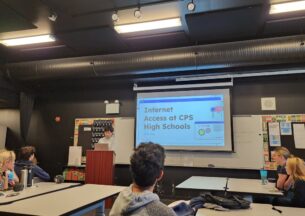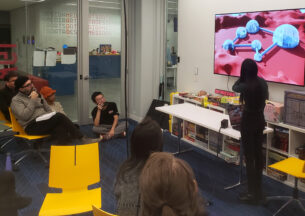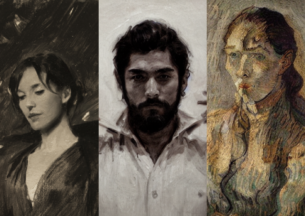Marshini Chetty (Princeton) - I Can See Clearly Now: Empowering People Through Internet Transparency
I Can See Clearly Now: Empowering People Through Internet Transparency
Is this an ad? Is it safe to visit this website? Am I being tracked? Am I getting a fair deal? Internet users face seemingly simple questions like these every time they connect to the Internet with increasingly significant consequences for inaccurate information. Yet, as the content people see online cannot always be taken at face value, questions like these are becoming more difficult to answer. I study, design, build, and evaluate technologies to help users answer these questions, by improving the “transparency” of the networks, applications, and networked devices used to get online. My research goal is to empower Internet users by providing them with accurate, clear, and real-time information about—and control over—Internet privacy, security, performance, and costs. By doing so, my work gives Internet users the power to make well-informed decisions, as well as the agency for protecting themselves against and holding others accountable for online malfeasance. My research also informs Internet policy by providing evidence of what kinds of transparency Internet users require and respond to. In this talk, I describe why Internet transparency is so important and how challenging it is to provide transparency to end-users. I present two Internet transparency projects for end-users. These projects include a system that helps users identify whether online content is an advertisement, and multiple systems for helping elementary school-age children learn about Internet safety and how to protect themselves online. I conclude with open questions for making the Internet more transparent for end-users.
Host: Blase Ur
Marshini Chetty
Marshini Chetty is an associate professor in the Department of Computer Science at the University of Chicago where she directs the Amyoli Internet Research Laboratory (AIR lab). She specializes in human-computer interaction, usable privacy and security, and ubiquitous computing. Her work has won best paper and honorable mention awards at SOUPS, CHI, and CSCW, and she was a co-recipient of the Annual Privacy Papers for Policymakers award. Her research has been featured in the NYTimes, CNN, Washington Journal, BBC, Chicago Tribune, The Guardian, WIRED, and Slashdot. She has received generous funding from the National Science Foundation, through grants and an NSF CAREER award, as well as the National Security Agency, Facebook, and multiple Google Faculty Research Awards.













